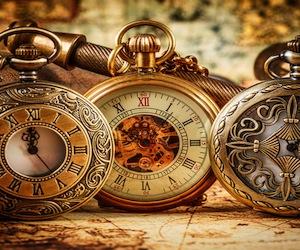Wheaton Office |
St. Charles Office |
Sycamore Office
 630-665-7300
630-665-7300
Antiques and Collectibles in Divorce
 Among the issues to resolve in some divorce cases is the division of antiques, collectibles, or other unique items. Although this type of property is commonly at issue in high net worth divorces, antiques and collectibles may be a part of any divorce. In addition to having significant monetary value, these items often have sentimental value. Because of this, it can make dividing this property very difficult, particularly in contentious divorces.
Among the issues to resolve in some divorce cases is the division of antiques, collectibles, or other unique items. Although this type of property is commonly at issue in high net worth divorces, antiques and collectibles may be a part of any divorce. In addition to having significant monetary value, these items often have sentimental value. Because of this, it can make dividing this property very difficult, particularly in contentious divorces.
Dividing Antiques and Collectibles
Antiques, unique items, or collections such as art, coins, or wine, are often not easily dividable. Further, it can be difficult to determine the value of these types of items. Contributing to that difficulty is the fact that antiques and collectibles may have significantly increased in value since they were first purchased or acquired.
One certain way in which to deal with the division of this type of property is to sell all of it and then simply divide the proceeds. However, if there is an emotional attachment to the property, this will not be a desirable option. Instead, the property will have to be valued and allocated between the parties.
Illinois is an equitable division of property state, meaning the court will attempt to allocate the marital assets in a manner that is fair and equitable to both parties. Because of this, property may be allocated completely evenly or a majority of the property may be awarded to one party. In other words, assets do not need to be divided in a “50/50” split.
The first step to dividing antiques or collectibles is determining the value, which is often accomplished through the use of a valuation expert who regularly deals with similar items as those involved in the divorce. Under most circumstances, the valuation will be the fair market value of the item—the amount the item could be sold for under normal conditions.
Ordinarily, any property acquired after the marriage is presumed to be marital property. However, in Illinois, inter-spousal gifts (that is, gifts from one spouse to the other) are considered non-marital property; therefore, if a spouse gives an expensive antique or collectible as a gift, it will not be part of the assets that are equitably divided between the parties.
Related to gifts between spouses are gifts given to both spouses from a third party. If a third party gives a gift specifically to one spouse, that gift is considered non-marital property. However, if the gift is given to both spouses, the gift is marital property and is subject to division if the married couple gets divorced.
If you are going through a divorce, it is important for you to inventory all antiques, collections, and other unique items with detailed information, such as when the property was acquired (either before or after the marriage) and the value.
Help During Divorce
Divorces involving antiques, collections, or other rare items can become complex, particularly if the divorce is contentious. If you are facing the prospect of a divorce, please contact a skilled Illinois family law attorney today at MKFM Law. Our firm provides assistance, with compassionate understanding of the difficulty of the situation, to individuals going through the divorce process.
Source:
http://www.ilga.gov/legislation/ilcs/ilcs3.asp?ActID=2086&ChapterID=59


 Read More
Read More





